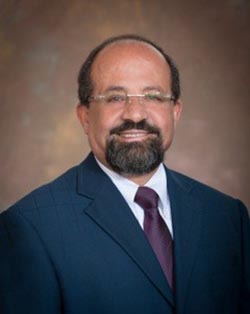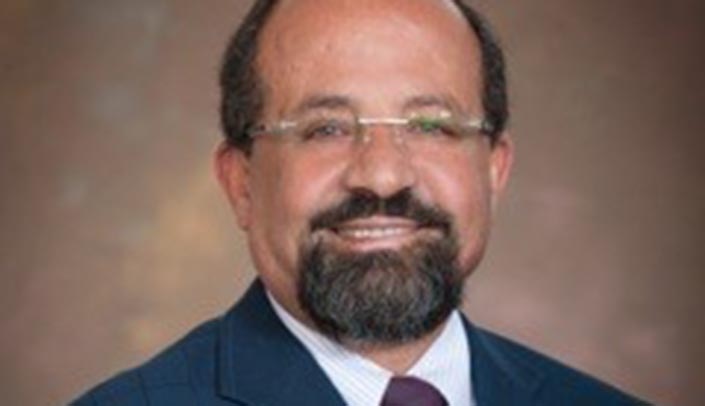 |
| Adnan Hammad, Ph.D. |
Adnan Hammad, Ph.D., president and CEO at Global Health Research, Management & Solutions, LLC near Detroit, will be the speaker at a Jan. 7 presentation from noon to 1 p.m. in Room 3013 of the Maurer Center for Public Health.
Dr. Hammad’s speech will look at the displacement of refugees and emerging public health conditions in the Middle East and North Africa (MENA) region. Dr. Hammad is an adjunct professor in the department of family medicine and public health sciences at Wayne State School of Medicine. He also is an adjunct professor and consultant for the School of Medicine and School of Public Health at Michigan State University.
The speech is open to faculty and staff at UNMC and the University of Nebraska at Omaha. Lunch will be provided to the first 50 people. The event will be live streamed. Please copy and paste this link — http://www.unmc.edu/livevideo/cophlive.html — into your browser. If you have trouble viewing, call 402-559-8090.
The speech is presented by the UNMC & UNO Office of Global Engagement in conjunction with the Center for Reducing Health Disparities in the UNMC College of Public Health.
“This will be the initial lecture in an ongoing program sponsored by the Office of Global Engagement,” said Bruce Grogan, director of global engagement, international health and medical education. “We think Dr. Hammad’s talk will be of interest to many people, as he will touch on a variety of topics including health security, epidemiology and disease surveillance.”
The objectives of his speech include:
- Review emerging public health conditions in the MENA region and enhance understanding of how migration, displacement, and associated socioeconomic deterioration influence physical and mental health and social behaviors;
- Share knowledge about collaborative models to improve social and environmental coping mechanisms; and
- Discuss leverage of global resources for improving health in regional refugee communities and hosting countries during periods of turmoil, including through improved capacity building and mental health resources.
